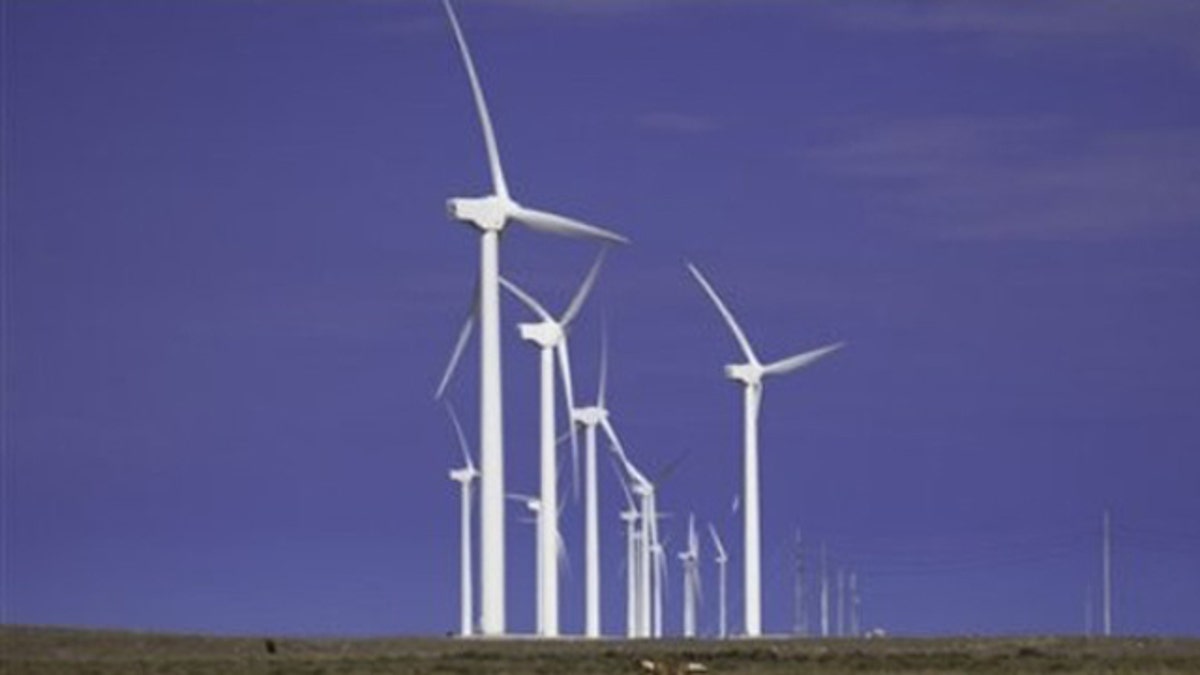
Cattle graze beneath turbines at a wind farm in Texas. (AP)
The Army is embarking on an ambitious mission to house billions of dollars worth of renewable energy projects on bases across the country -- in exchange for a share of that energy sometime in the future.
The effort comes at a time when government-backed clean-energy projects are facing heightened scrutiny in Congress. In the wake of the controversy over a solar-energy firm that received nearly $530 million in taxpayer loans before filing for bankruptcy, lawmakers are on edge over the government's support of the clean-energy industry.
But the Army says this endeavor puts the bulk of the risk on the private sector and that military officials will make sure the companies they partner with have a "track record" that instills confidence.
"We're all going to be scrutinizing the projects to ensure it's a win-win situation for the Army and the American taxpayer," Katherine Hammack, assistant Army secretary for installations, environment and energy, told FoxNews.com.
Under the plan, the Army hopes to attract more than $7 billion in private investment over 10 years. Those companies would be allowed to use the Army's abundant real estate to build up alternative-energy operations ranging from solar to wind to geothermal. In exchange, the Army would be looking for some kind of "in-kind" payment down the road. That means the companies would be expected to give the Army their energy for free or at a reduced price once the operations are up and running.
Hammack argued that the sacrifice on the military end is relatively small. She estimated the Army could have as much as 5 million acres of available land -- out of 15 million acres total. Much of the available land merely serves as a buffer between bases and local communities.
The Army, which last week set up a task force to shepherd the project, will also contribute its resources to conduct the studies necessary to move the proposals along. This work could be done by staff as well as contractors.
"The capital contribution by the military is something that comes in many different forms," Hammack said.
But she said it is the companies that will be making the investment. "The risks of these projects is on the developer," she said.
Hammack said the Army got more than 100 responses from companies when it put out feelers for potential projects earlier this year. She counted about 20 projects in the pipeline, and envisioned an outcome where Army bases in different regions of the country eventually host renewable energy firms that capitalize on the assets of those regions.
Bases in the sunny southwest, she said, might host solar-energy projects, while bases in Texas might host wind farms. "We're looking at just about anything," she said.
The project is part of a broader Army goal to use 25 percent renewable energy by 2025. By trading real estate for energy, Hammack said the project will also contribute to the military's energy security -- by ensuring military bases have their own supply of renewable energy no matter what's going on outside the fences.




